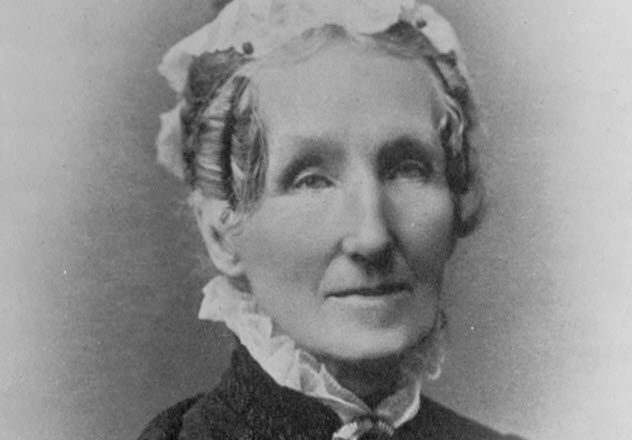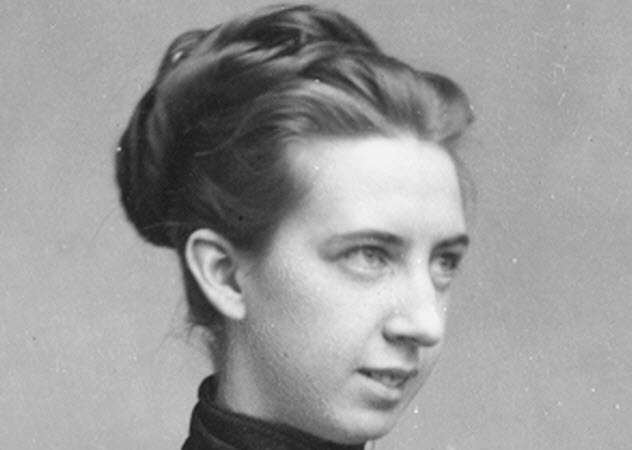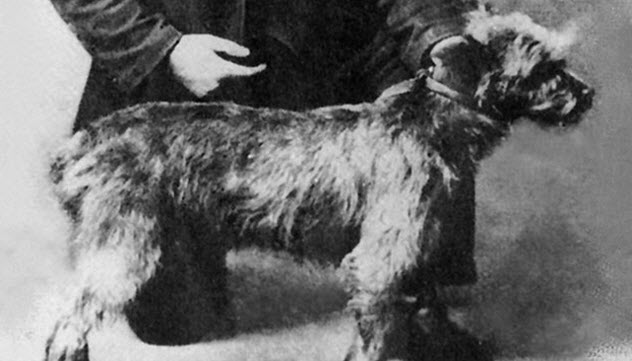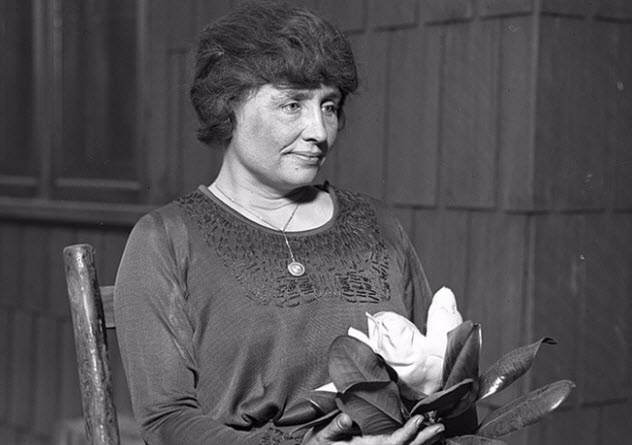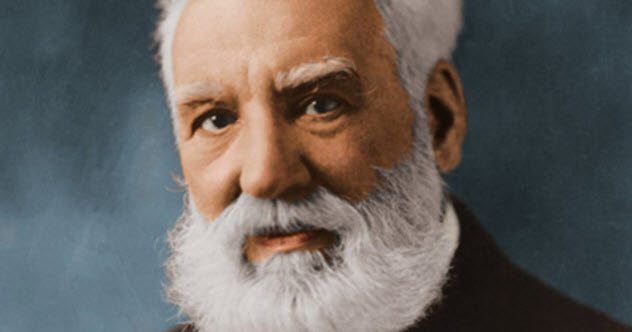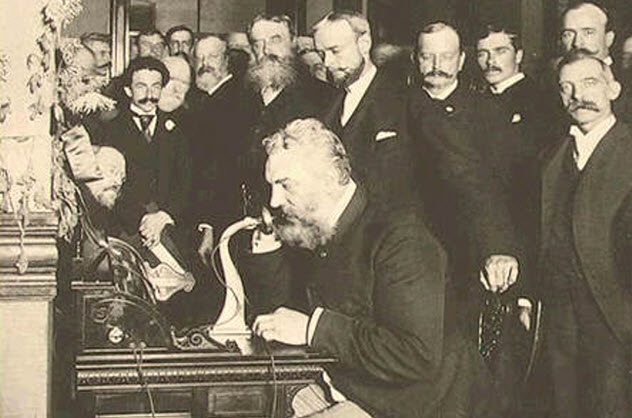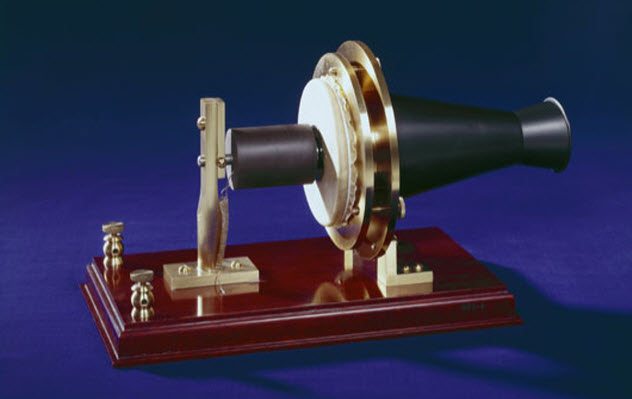Today, a major part of the deaf community views Bell as a monster, and that’s started to spread. Articles have been written calling him a “huge jerk,” saying that he “fought against deaf people’s rights,” or even saying that he “hated deaf people.” The man dedicated his life to a group of people, and in the end, he became one of their worst villains. It’s a strange and complicated story, seemingly full of contradictions, that gives a little insight into what it was like to be deaf at the turn of the 20th century.
10 He Pushed For A Law Against Deaf People Breeding
There are reasons why some people in the deaf community hate Alexander Graham Bell. He wrote an entire paper warning about the formation of a “deaf race.” He suggested that deafness was a “great calamity” and the only cure was eugenics. Deaf people needed to be wiped out. The problem, Bell believed, was that deaf people were permitted to get married. “It is only reasonable to assume that tendency toward deafness exists in a family containing more than one deaf-mute,” he wrote.[1] Unlike Adolf Hitler, Bell didn’t call for the extermination of deaf people. However, he did suggest that it should be illegal for two deaf people to get married. He wrote, “A law forbidding congenitally deaf persons from intermarrying would go a long way toward checking the evil.” Bell’s only worry was that it might be too hard to enforce. So, for the time being, he suggested that deaf people should simply be kept apart. They should be forbidden from going to deaf schools or learning from deaf teachers. If two deaf people never met, he argued, they couldn’t get married.
9 Even Though His Mother Was Deaf
Ironically, Bell might never have been born if his own ideas had gone into action. Although he was against deaf people having kids, Bell was the son of a deaf mother. This seems like a contradiction, but his mother actually helped to inspire Bell’s ideas about deaf eugenics. Although sources vary as to the timing and exact cause of her hearing loss, she wasn’t born deaf and so couldn’t pass it on genetically. By Bell’s standards, she would have been allowed to breed. But if there had been no legal exceptions for deaf people procreating, he would never have existed.[2] More importantly, Bell’s mother was the model of what he thought a deaf person should be. Her husband, Bell’s father, was the developer of Visible Speech, a phonetic alphabet designed to teach deaf people to talk. She had picked it up swimmingly. She could talk and, even more amazingly, was an accomplished pianist. Like Beethoven, she would hold her ear up to the piano to listen to the vibrations and play. To Bell, this was what a deaf person should be—someone integrated into the world of those who could hear. That person would read lips and speak and do nothing to betray his deafness. The “deaf race” that Bell wanted to avoid was composed of people speaking sign language and living apart from the rest of the world.
8 His Wife Was Deaf, Too
Bell followed in his father’s footsteps in every way. As he grew up, Bell built on his father’s ideas for Visible Speech and took over his school for the deaf. And, like his father, Bell married a deaf woman. At age 27, Bell fell in love with a 16-year-old student named Mabel Gardiner Hubbard. She had lost her hearing to scarlet fever when she was young, but she had learned to read lips and to speak. Bell found her voice enchanting, and he talked about it a lot. “Mr. Bell said today my voice is naturally sweet,” his wife-to-be wrote home in one letter. In another, she reported that she had worried that she couldn’t speak clearly. But Bell had reassured her by saying: “The value of speech is in its intelligibility, not its perfection.” This was Bell’s complicated relationship with the deaf. He felt passionately for them, but he wouldn’t let them live in deaf communities. He wanted them to do everything that hearing people could do.[3]
7 He Used Visible Speech To Teach A Dog How To Talk
So just how good a teacher was Alexander Graham Bell? He understood Visible Speech so well that he could literally teach dogs how to talk. When Bell was 20 years old, he rescued a stray dog named Trouve and tried using his father’s techniques to get the terrier to talk. Bell would shape the dog’s mouth to produce the sound “ma” and taught Trouve to say “mama” every time he begged for a treat. But Bell didn’t stop there. He soon added more complicated sounds, starting with “ah,” “ow,” “oo,” and “ga.” Then he put them together and got the dog to say, “ah ow oo ga ma ma?” Or, as it sounded, “How are you, Grandmama?”[4] Bell had to help Trouve move his lips a bit to say that one. Despite the dog’s accomplishments, Bell was disappointed that he never managed to get the terrier to the point where he could enter polite society. But Bell did prove that his methods could be used to teach deaf people to talk.
6 He Was Responsible For Helen Keller Learning To Speak
Bell doesn’t always get credit for it, but he’s the reason why Helen Keller learned to talk. When she was a young girl, her parents brought her to see Bell. He had a reputation as one of the best teachers for the deaf in the world. At their first meeting, Bell made his pocket watch chime so that Keller could feel the vibration. It became a lifelong memory for her. Later, she called Bell “the door through which I should pass from darkness into light.” Bell put Keller’s parents in touch with the Perkins Institute, which sent a teacher to Keller’s home: Anne Sullivan, the woman who later became known as “the miracle worker.” She famously taught Keller to say the word “water.” After that first breakthrough, Sullivan excitedly reported what had happened to Bell.[5] He spread the story and made Keller a celebrity. Bell often sent her money to cover her living expenses and even learned how to use a braille typewriter so that he could stay in touch with her. In return, Keller dedicated her autobiography to Bell.
5 He Was The President Of The International Eugenics Congress
Even after marrying a deaf woman and meeting Helen Keller, Bell never gave up on his ideas about deaf eugenics. He still felt that deaf people should be kept from breeding with each other. Eugenics wasn’t just a minor part of his life. He was so involved that he became head of the Eugenics Section of the American Breeders Association and was made the honorary president of the Second International Eugenics Congress. During this time, many eugenicists were calling for the sterilization of deaf people. Leonard Darwin, the keynote speaker at that congress, called for “the elimination of the unfit” and pushed for the use of X-rays to sterilize the feebleminded. Today, many people credit these ideas to Bell by association. But that isn’t totally fair. Bell only supported selective breeding and never pushed for sterilization. His hands weren’t entirely clean, though. He went on the record pushing to keep “undesirable ethnical elements” from immigrating into the US so as to permit the evolution of “higher and nobler” men in America.[6] For her part, Helen Keller picked up on her teacher’s ideas and took them even further than he did. Despite her own condition, she wrote a letter that called for the euthanasia of disabled children and described eugenics as a “weeding of the human garden that shows a sincere love of true life.”
4 He Invented The Telephone To Please His Deaf Fiancee
If the deaf people in Bell’s life had been weeded out, he never would have invented the telephone. He was inspired to research acoustics because of his mother. She would have him talk to her in a low voice near her forehead so that she could hear the vibrations. That created the first spark of thought that would lead to his biggest invention. In his twenties, he began experimenting with the phonautograph, an early sound recorder. But his main interest was in how it could help deaf people. He used it as a tool to illustrate the malfunctions that cause deafness. In time, he started to realize that he could use these ideas to transmit sound. But even then, he still wanted to concentrate on his work with the deaf. It was his deaf fiancee, Mabel, who forced him to sit down and focus on the telephone. Her father had invested money in his experiments. When he kept diverting his attention to help the deaf, she forced him to quit working on Visible Speech. She wrote a letter threatening to call off the marriage, saying that he “should not have me unless he gave [Visible Speech] up.”[7]
3 He Nearly Skipped The Unveiling Of The Telephone To Teach Deaf Kids
Alexander Graham Bell became a household name after he unveiled the telephone at the Centennial Exposition in Philadelphia. It was the moment when the world got its first glimpse of his invention. He won a gold medal there—and international celebrity. But he almost didn’t go. Bell had scheduled a class the same day, and he felt that teaching deaf kids was more important than showing off the telephone. It was Mabel who forced him to go, again threatening, “If you won’t do a little thing like this now, I won’t marry you.” Bell went, writing to his mother that he had only gone because he couldn’t say no to Mabel. On the way up, though, he wrote letters to his fiancee that complained about what she had forced him to do. “Oh! My poor classes!” he wrote. “I shall be far happier and more honored if I can send out a band of competent teachers of the deaf and dumb who will accomplish a good work, than I should be to receive all the telegraphic honors in the world.” For all he’d given in to Mabel, he hadn’t truly given up on his work with the deaf. The telephone wasn’t the only exhibit he had brought. He also set up a pavilion on Visible Speech. On the day that he introduced the telephone to the world, Bell was happier about the other, less publicized gold medal he won for his work with the deaf.[8]
2 He Got Sign Language Banned
More than anything, Bell hated sign language. He felt it was a language as different from English as German. It left deaf people segregated from the rest of society, he said. He wanted it banned. In 1880, bolstered by the new fame he’d won for inventing the telephone, Bell went to the International Congress of Educators of the Deaf and put forward a bill banning sign language in schools. At that time, Bell was by far the most influential person there. He used his celebrity to exclude deaf teachers from participating in the vote. Without their input, his bill went through. Sign language and deaf teachers were banned in schools around the world. In Bell’s mind, this was a greater achievement than the telephone. He had fought against sign language, and he had won. For many deaf people, though, this would be a dark moment. Literacy rates among the deaf would plummet. Bell’s policies would stay in effect for 100 years, and this moment would turn a huge part of the deaf community against him forever.[9]
1 His Last Words Were In Sign Language
For all he opposed it, Bell learned sign language. And when his final moment came, his last words were signed. They were to his wife. He loved her deeply, as shown by the incredibly touching love letters he left behind. On the night they got engaged, he wrote her a note: “I am afraid to fall asleep, lest I should find it all a dream—so I shall lie awake and think of you.” While traveling, he wrote a letter that shows how hard it was for him to be without her. He recounts a vision he had while lying alone in bed. “I felt a hand placed lightly on my shoulder—and a soft cheek was laid on my cheek—and a voice said ‘How do you do, little boy!!!’ Fancy my surprise—for the voice, Mabel—was your voice!!” he wrote. “I turned over at once and put out my arms to give you a good hug—and there was no one there!” When he was on his deathbed, she was every bit as afraid of living without him. Holding onto his hand, his wife pleaded, “Don’t leave me.” Bell didn’t have the strength to speak. He signed the word “no” but lost the strength to say another word.[10] He died, his last word signed in the language he’d campaigned to destroy. Read More: Wordpress

